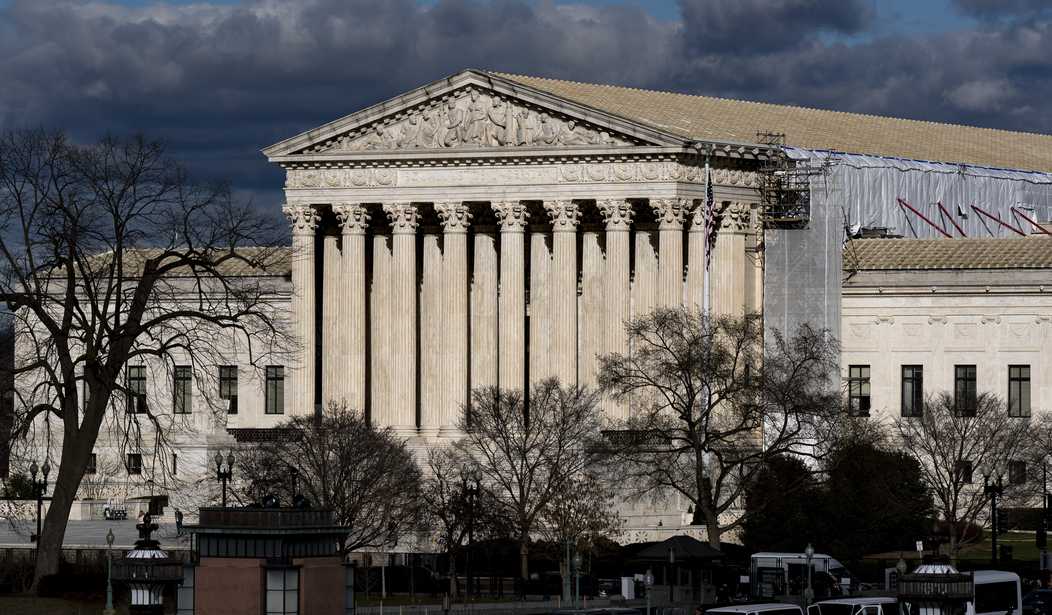On Tuesday, oral arguments began in Vanderstock v. Garland, which is a case about so-called ghost gun kits. The ATF started dictating that such kits were close enough to firearms that they should be serialized and treated like traditionally manufactured firearms.
Now, for an anti-gun Biden administration, this is par for the course. However, the overall feeling from many is that the supposedly conservative Supreme Court agrees.
That makes me ask just what good is having a supposedly significant conservative majority doing for gun owners, anyway?
The conservative Supreme Court, largely hostile to gun regulations in recent years, seemed tentatively supportive of the Biden administration’s effort to curb “ghost guns.”
...
Arguing in support of the regulation, Solicitor General Elizabeth Prelogar said that if the manufacturers and sellers of these kits prevail, it would work “a sea change” in the nation’s firearm laws. Under the kit sellers argument, “if a firearm isn't a 100% functional, if its missing just one hole that could be drilled in seconds and immediately assembled into a working gun, that product can be sold to anyone online with no background check, no records, and no serial number,” said Prelogar.
Justices Clarence Thomas, Samuel Alito, Neil Gorsuch and Brett Kavanaugh all expressed some skepticism about that argument. The four were the likely dissenters when the court allowed the ghost gun regulation to remain in effect.
Alito focused on the definition of a weapon, and when it is considered just a part. Holding up a yellow legal pad and a pen, he asked: “Is this a grocery list?” Solicitor General Prelogar replied that it was not, since “there are a lot of other things you could use [the pad for] for to create something other than a grocery list.”
Justice Amy Coney Barrett chimed in, asking Prelogar if her answer would change if she were to order a kit to make turkey chili from HelloFresh with “all of the ingredients in the kit.” Prelogar saw this as “the more apt analogy” because much like a gun kit, where the purpose is to build a gun, the purpose of that kit would be to make chili.
So Barrett looks like she'll side with Roberts--who has always been squishy on gun issues--and the three liberal justices to basically hand the case to the Biden administration.
Recommended
Yet the heart of the matter here is essentially the same as it was in Cargill, which the courts gave what many consider a pro-gun ruling, overturning the ATF's unilateral ban on bump stocks. The argument in Cargill was that the ATF lacked the authority to essentially redefine what is and isn't a machine gun.
Here, the issue is that the ATF is trying to define what is and isn't a firearm. That matter was laid out in the Gun Control Act of 1968 and it is a completed frame or receiver. The presence of other parts or not doesn't matter. A completed receiver requires you to go to an FFL and have it transferred.
But the kits are nothing more than a group of parts and a piece of plastic that is not a firearm, and the ATF decided to say that yeah, they really were, which is the exact same situation as we saw in Cargill.
So what is going on? Why is our supposedly conservative majority on the Supreme Court siding with gun control advocates here, especially when they've already ruled correctly on one other case?
Now, I get that this same Court has ruled well on a number of issues of interest to conservatives and even many libertarians. Dobbs, for example, and Bruen were both important cases that outraged the left and illustrated just why justices serve lifetime appointments. That way they don't have to keep anyone happy and can just rule on the law.
But then the Court seemingly countered much of what they said in Bruen when they ruled in Rahimi. They issued a ruling in Cargill and are expected to counter that ruling here in Vanderstock. I'm sure you'll excuse me for no longer feeling a great deal of confidence where this court will land on any issue that actually matters, but especially on anything relating to guns.
It's entirely possible that everyone is wrong and the Court will actually smack down the ATF for yet another overreach.
But I'm not holding my breath on this one.

























